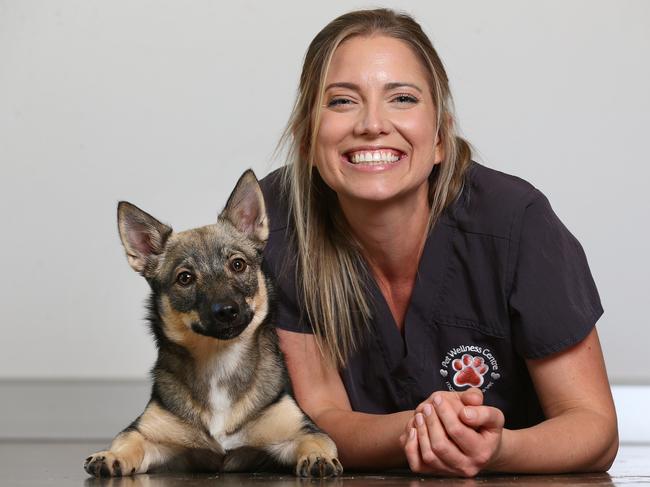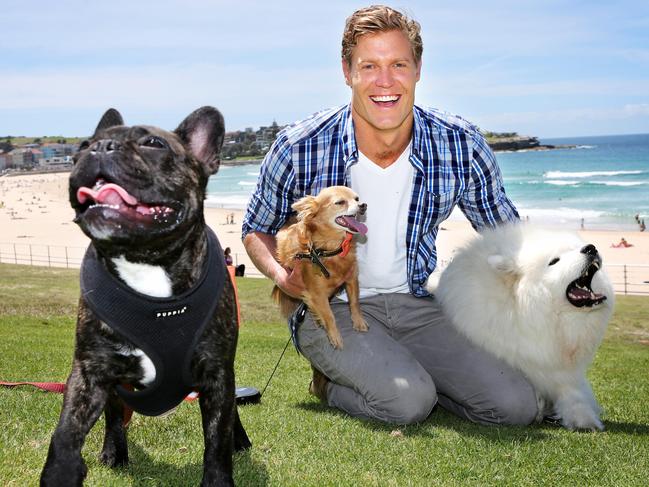Experts talk pets and separation anxiety post lockdown
There is no doubt your pet has enjoyed having you home all day during lockdown. But as we start to head back to work it can unleash a hidden problem. Here is what to look out for.
Hibernation
Don't miss out on the headlines from Hibernation. Followed categories will be added to My News.
They have lounged by our home office chairs, curled up in our laps for binge-watching marathons and shared in our bountiful baking sessions.
Pets have loved having us home but as social distancing restrictions start to ease, our cats and dogs could suffer from the loss of attention, according to vets.
TV presenter and vet Chris Brown said the post-pandemic period could trigger a health crisis for pets.
“My fear is a worldwide surge in separation anxiety brought on by a sudden lack of human contact,” he said.
“The key is to not create an unrealistic life. You must start preparing them for the reality of the post-pandemic period now … that time when there’s no-one to service their need for pats and play.”
As pack animals dogs enjoy having company all the time but they also respond well to routine and this will be crucial in helping them manage the transition from constant attention to long periods alone.
Any change in routine can bring on symptoms of dog separation anxiety, Pet Wellness Centre vet Dr Claire Stevens said.
“You might find your darling dog actually becomes destructive, barks incessantly or otherwise misbehaves when left alone for the first time,” Dr Stevens said.
“Separation anxiety in dogs often manifests itself in rowdy behaviour – such as barking, digging, destroying furniture or other household objects – which can be exhausting for you and your neighbours.”

Other symptoms include accidents in the house or trying to escape to follow their owner.
In extreme cases dogs will lose their appetite, hide away in a corner, pant or whine excessively and generally look depressed when their owner is away, and become extremely excited when their human returns home.
The experts agree it is essential to remove the fear dogs have of being left alone without your company.
“You need to reassure your pet that no harm will come to them when you are away, and that you will be back,” Dr Stevens, whose new book Love Your Dog has a chapter dedicated to canine behavioural problems and training, said.
“You also need to ensure that he is kept entertained while you are away so that he doesn’t become bored and lonely.”

For example, a special toy can be left out but then put away when you return.
Separation anxiety is often unknowingly triggered by owners making a big fuss when they leave the house or come home so this is one area that owners can start working on now.
Greyhounds as Pets managing director Dr Alicia Fuller said the stress humans felt when they need to change their habits is even greater in dogs because we could not explain to them what was happening.
“We need to make sure that we provide the same comfort and reassurance to them that they have provided to us while we have been confined to our bubbles,” Dr Fuller said.
“All pets, like children, respond well to routine, but dogs in particular respond well to consistency. They feel confident and seek comfort in regular walk and mealtimes and the predictable comings and goings of their humans.”
Dr Fuller added you dog would always be pleased to have you come home; but do not encourage them to become overexcited as this can make their time alone at home more difficult to cope with.
“Try not to make your return home exciting – just say hello and then carry on with something like making a phone call or putting the shopping away,” Dr Fuller said.
“Five to ten minutes later you can calmly greet the dog in a low key manner once they have settled.”
Originally published as Experts talk pets and separation anxiety post lockdown
